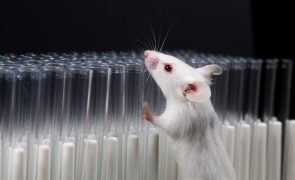Background
Genetic polymorphism of cytochrome 450 (CYP) drug-metabolizing enzymes leads to inter-individual variability in the plasma concentrations of many drugs. Inter-individual variability among patients is a major clinical problem, as it can cause serious adverse drug reactions or therapeutic failures. Therefore, knowledge of CYP genotypes is very useful in predicting individual phenotypes that will help clinicians in the selection of the most appropriate drug dosages in each patient. In particular, it is excellent for predicting who might be a candidate for high, normal or low doses of a certain drug, or who might not be a candidate for a certain drug at all.
Customer need
Our client, a clinical research organization specializing in human clinical studies, inquired of GENERI BIOTECH the best approach of how to detect different CYP2A6 genotypes which are known to influence a response to an anti-cancer drug they wanted to investigate.
The solution
To optimally address the inter-individual CYP2A6 variability, our R&D department designed and developed 3 different genetic assays to cover all relevant CYP2A6 genotypes:
-
- To analyze the single-nucleotide polymorphism (SNP) containing allele *2 and *9, we employed Q-FRET PCR assay, which is based on melting curve analysis of the Q-FRET probes, to identify WT, HET and MUT genotypes.
- To detect the presence of 5´UTR region which is absent in alleles *4, *12 and other fusion gene variants, we performed qPCR with our in-house made GeminiTM probes with enhanced quenching properties and low background. We also used our Gemini probe in a specific qPCR assay to detect the allele *12, aiming to cover fusion gene variants.
- To identify allele *4, we ran qPCR with subsequent melting point analysis using SYBR Green intercalating agent, also aiming at fusion gene variants.
Customer benefit
- our client profited from an internal close collaboration of testing and R&D departments – the design, optimization and validation of complex genotyping assays was done under one roof at unparalleled speed
- by using of our own GENERI BIOTECH GeminiTM molecular probes we achieved reliable and fast results with high sensitivity harnessing the improved signal-to-noise ratio
Published by: Kateřina Dolečková, Ph.D.
August 2019
E-mail

 DNA genotyping
DNA genotyping 

